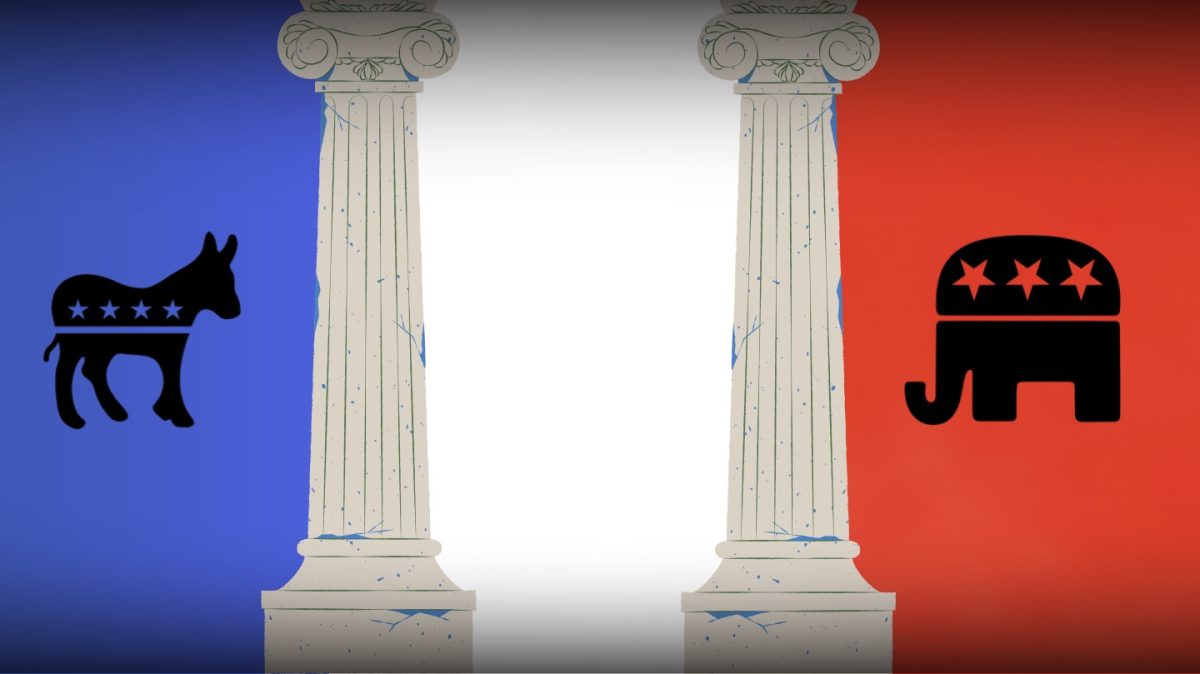It is no secret that the political climate at Summit leans more left than right. In classroom discussions, social media posts and casual conversations, democratic logic tends to dominate. Students and teachers often express liberal beliefs with ease, while conservative opinions are concealed.
Still, many students hold Republican ideologies and views. To truly understand opposing opinions, it’s important to look deeper—not with judgment or quick conclusions, but with understanding.
Some of the biggest reasons many Republicans support Trump and conservatism in general include religion, immigration and, to a lesser degree, the economy.
Summit sophomore Leighton Allen likes to remain neutral when it comes to Republican and Democratic ideologies. However, she feels that in the past, Democrats were disrespectful of Christian beliefs.
“Democrats in past years really fired on Christianity,” said Allen.
Donald Trump has consistently aligned himself with Christianity. He appointed three conservative justices, signed executive orders aimed at protecting religious organizations and called for increased protections for students and teachers who want to pray in public school, all actions which suggest his endorsement of and active devotion to Christianity.
However, Trump’s administration is not backed by all religions. The Pope, who was a prominent Catholic figure, openly expressed his disapproval of Trump, claiming his deportation plans were a disgrace and not the correct solution. Because of Pope Francis’s prominent religious role and influence, one would think that it would inspire increased dislike towards Trump, specifically among Catholics and other religious individuals.
Immigration policy was another major factor for conservatives. Summit sophomore Bryden Ditty acknowledges both sides of the issue, discussing the advantages and disadvantages of his policies.
“The good parts [of deportation] are that the people who are causing trouble in America and who are illegal immigrants and are not doing anything for the economy [are being removed],” said Ditty. “[However] hard-working people who have been living in America for years now [are also being deported.]”
Summit senior Viggo Boersma, however, has a firmer stance on immigration.
“If you are not going to take the time to do it the legal way, then you are not going to be here,” said Boersma. “[Immigrants’ presence] is not really fair to all the other American citizens.”
Ditty supported Trump primarily because of his economic policies, particularly his plans for the stock market. However, with the recent decline, Ditty’s priorities have shifted, as now he wishes the stock market would go up because he’s placed his money there.
Ditty’s concerns echo a broader worry among some Republican voters, especially those who supported Trump for his perceived economic strength. With the recent downturn, there has been growing anxiety within some conservative groups. Some Republicans are beginning to question Trump’s economic strategies and wonder if he can still deliver the financial security they had hoped for.
Boersma and Summit senior Bobby Bloom also revealed their dislike of the tariffs. Each noted how they negatively affect the stock market and are a little extreme.
“[Trump should] continue or try to work better with other countries because I do not think putting reciprocal tariffs…is the way to do it,” said Bloom.
While Boersma, Bloom and Ditty do not fully embrace Trump, they view him as the lesser of two evils, someone who at least acknowledges or protects their beliefs, even if imperfectly. For them, support is less about enthusiasm and more about aligning values.
“I do not necessarily support Trump. It is just that I like him more than Kamala,” said Ditty.
A common thread throughout Bloom, Boersma and Ditty’s interviews was how they challenged the right wing stereotypes. They all acknowledged Trump’s flaws and ultimately formed their opinion based on the values most significant to them.
While the media often reflects the most extreme and controversial views, their perspectives illuminate the true nature of their beliefs. They spoke without contempt or hatred, but instead in an honest and reflective tone.
Conservative beliefs like these can often be misinterpreted and spark anger, which ultimately closes the door to deep and insightful conversation. Many people don’t share their opinions with the intent to spread hate, but to explain their perspective, which allows others to understand.
In the end, what became clear from these conversations is that political support, especially among young conservatives, is rarely black and white. It is not about unwavering loyalty to a candidate but navigating complicated values, beliefs, and trade-offs. Whether it is religion, the economy or immigration, many students at Summit evaluate their options with thoughtfulness and care, even if political candidates do not fully represent their views.
While political opinions may differ, one thing remains consistent: a shared hope for a stronger, more unified America. While getting there will be challenging, with judgment and hatred being the default choice, understanding leads to better conversations and eventually common ground.
































